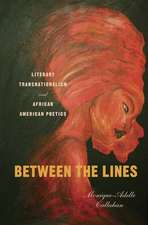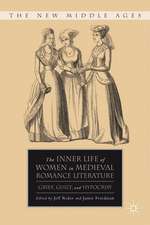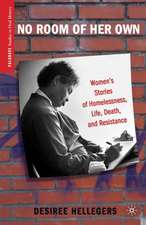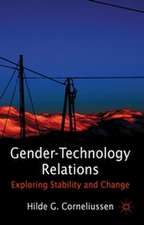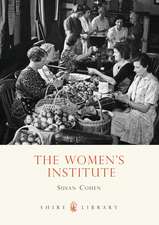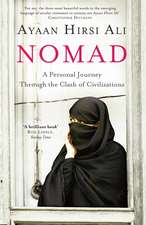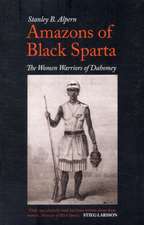Female Circumcision – Multicultural Perspectives: Pennsylvania Studies in Human Rights
Autor Rogaia Mustafa Abusharafen Limba Engleză Paperback – 21 ian 2007
Din seria Pennsylvania Studies in Human Rights
-
 Preț: 240.85 lei
Preț: 240.85 lei -
 Preț: 191.81 lei
Preț: 191.81 lei -
 Preț: 243.06 lei
Preț: 243.06 lei -
 Preț: 238.67 lei
Preț: 238.67 lei -
 Preț: 194.09 lei
Preț: 194.09 lei -
 Preț: 352.64 lei
Preț: 352.64 lei -
 Preț: 275.75 lei
Preț: 275.75 lei -
 Preț: 239.77 lei
Preț: 239.77 lei -
 Preț: 198.22 lei
Preț: 198.22 lei -
 Preț: 245.25 lei
Preț: 245.25 lei -
 Preț: 246.69 lei
Preț: 246.69 lei -
 Preț: 325.82 lei
Preț: 325.82 lei - 19%
 Preț: 447.55 lei
Preț: 447.55 lei -
 Preț: 236.48 lei
Preț: 236.48 lei -
 Preț: 241.28 lei
Preț: 241.28 lei -
 Preț: 236.48 lei
Preț: 236.48 lei - 23%
 Preț: 568.45 lei
Preț: 568.45 lei -
 Preț: 238.67 lei
Preț: 238.67 lei -
 Preț: 243.94 lei
Preț: 243.94 lei -
 Preț: 477.33 lei
Preț: 477.33 lei -
 Preț: 237.35 lei
Preț: 237.35 lei - 15%
 Preț: 360.60 lei
Preț: 360.60 lei -
 Preț: 248.30 lei
Preț: 248.30 lei -
 Preț: 413.03 lei
Preț: 413.03 lei -
 Preț: 243.94 lei
Preț: 243.94 lei -
 Preț: 196.55 lei
Preț: 196.55 lei -
 Preț: 243.06 lei
Preț: 243.06 lei -
 Preț: 197.59 lei
Preț: 197.59 lei -
 Preț: 244.14 lei
Preț: 244.14 lei -
 Preț: 246.37 lei
Preț: 246.37 lei -
 Preț: 244.14 lei
Preț: 244.14 lei -
 Preț: 286.76 lei
Preț: 286.76 lei - 23%
 Preț: 538.83 lei
Preț: 538.83 lei -
 Preț: 432.36 lei
Preț: 432.36 lei -
 Preț: 193.78 lei
Preț: 193.78 lei -
 Preț: 194.09 lei
Preț: 194.09 lei -
 Preț: 194.91 lei
Preț: 194.91 lei -
 Preț: 239.10 lei
Preț: 239.10 lei -
 Preț: 443.54 lei
Preț: 443.54 lei -
 Preț: 317.05 lei
Preț: 317.05 lei -
 Preț: 197.18 lei
Preț: 197.18 lei -
 Preț: 244.45 lei
Preț: 244.45 lei - 19%
 Preț: 388.90 lei
Preț: 388.90 lei -
 Preț: 232.04 lei
Preț: 232.04 lei - 11%
 Preț: 530.16 lei
Preț: 530.16 lei -
 Preț: 313.53 lei
Preț: 313.53 lei -
 Preț: 197.18 lei
Preț: 197.18 lei -
 Preț: 292.24 lei
Preț: 292.24 lei -
 Preț: 283.21 lei
Preț: 283.21 lei -
 Preț: 241.28 lei
Preț: 241.28 lei
Preț: 196.96 lei
Nou
37.70€ • 39.20$ • 31.54£
Carte tipărită la comandă
Livrare economică 15-29 martie
Specificații
ISBN-10: 0812219414
Pagini: 296
Ilustrații: 2 illus.
Dimensiuni: 151 x 227 x 20 mm
Greutate: 0.43 kg
Editura: MT – University of Pennsylvania Press
Seria Pennsylvania Studies in Human Rights
Locul publicării:United States
Notă biografică
Cuprins
1. Introduction: The Custom in Question
—Rogaia Mustafa Abusharaf
PART I: LOCAL CONTEXTS AND CURRENT DEBATES
2. "Had This Been Your Face, Would You leave It as Is?" Female Circumcision Among Nubians of Egypt
—Fadwa El Guindi
3. Male and Female Circumcision: The Myth of the Difference
—Sami A. Aldeeb Abu-Sahlieh
PART II: AFRICAN CAMPAIGNS TO ERADICATE FEMALE CIRCUMCISION
4. Community-Based Efforts to End Female Genital Mutilation in Kenya: Raising Awareness and Organizing Alternative Rites of Passage
—Asha Mohamud, Samson Radeny, and Karin Ringheim
5. A Community of Women Empowered: The Story of Deir Al Barsha
—Amal Abdel Hadi
6. Strategies for Encouraging the Abandonment of Female Genital Cutting: Experiences from Senegal, Burkina Faso, and Mali
—Nafissatou J. Diop and Ian Askew
7. The Sudanese National Committee on the Eradication of Harmful Traditional Practices and the Campaign Against Female Genital Mutilation
—Hamid El Bashir
8. The Babiker Badri Scientific Association for Women's Studies and the Eradication of Female Circumcision in the Sudan
—Shahira Ahmed
9. "My Grandmother Called It the Three Feminine Sorrows": The Struggle of Women Against Female Circumcision in Somalia
—Raqiya D. Abdalla
PART III: DEBATES IN IMMIGRANT-RECEIVING SOCIETIES
10. The Double-Edged Sword: Using Criminal Law Against Female Genital Mutilation
—Audrey Macklin
11. Representing Africa in the Kasinga Asylum Case
—Charles Piot
12. Afterword: Safe Harbor and Homage
—L. Amede Obiora
Notes
List of References
List of Contributors
Index
Acknowledgments

